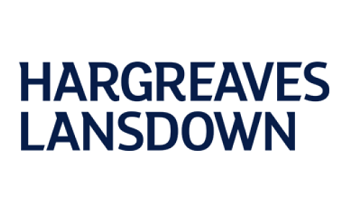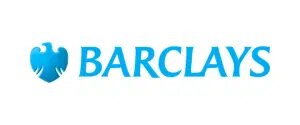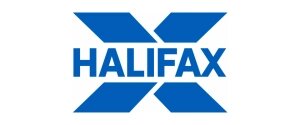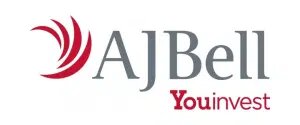
Best SIPP Brokers and Providers in 2022
All Featured SIPP Brokers
HARGREAVES LANSDOWN
- Please check and review all terms and conditions before applying.
What can you invest in?
Funds & Shares
Cost per share trade
Account closure fee
Overall Rating

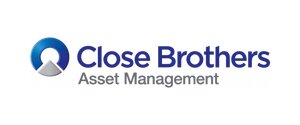
Read Review
CLOSE BROTHERS ASSET MANAGEMENT
- Please check and review all terms and conditions before applying.
What can you invest in?
Funds & Shares
Cost per share trade
0
Account closure fee
£0
Overall Rating

VANGUARD
- Please check and review all terms and conditions before applying.
What can you invest in?
Funds
Cost per share trade
N/A
Account closure fee
£0
Overall Rating

Latest Articles


The ART of choosing the best financial advisor for you

Coronavirus and Investing
AVIVA
- Please check and review all terms and conditions before applying.
What can you invest in?
Funds
Cost per share trade
N/A
Account closure fee
£0
Overall Rating

BARCLAYS
- Please check and review all terms and conditions before applying.
What can you invest in?
Funds & Shares
Cost per share trade
6
Account closure fee
£0
Overall Rating

HALIFAX
- Please check and review all terms and conditions before applying.
What can you invest in?
Funds & Shares
Cost per share trade
10
Account closure fee
£90
Overall Rating

AJBELL
- Please check and review all terms and conditions before applying.
What can you invest in?
Funds & Shares
Cost per share trade
0-9 TPCM: £9.95. 10-19 TPCM: £4.95. 20+ TPCM: £4.95
Account closure fee
£0
Overall Rating

What Is a Self-Invested Personal Pension (SIPP)?
A self-invested personal pension (SIPP) is a retirement savings account that is tax-effective. SIPP is available in the U.K. This incredible account grants enough freedom to the individuals to invest their assets in multiple types of investments. However, the investments must be acceptable by the non-ministerial “Her Majesty’s Revenue and Customs (HMRC)” department of the U.K. It is because the HMRC department is in charge of collecting tax and the payments of some other kinds of state support. Know that mutual funds, stocks, exchange-traded funds (ETFs), and bonds come under the category of approved investments.
A SIPP is different from company-sponsored pensions in a way that the latter gives only a few options for the investment. SIPPs have gained a lot of popularity in Great Britain since their introduction in 1989. Certainly, the end of lifetime final salary pensions and lifetime careers are the reasons behind the increasing demand for SIPPs.
Key Elements:
- A SIPP or self-invested personal pension can be referred to as a defined-contribution retirement scheme granted to the tax-paying people living in the U.K.
- The participants of SIPP can invest a part of their pre-tax income in buying bonds, stocks, and other acceptable assets in a tax-effective way.
- SIPP schemes were introduced as a replacement to the company-sponsored defined-benefit pensions similar to the United States 401(k) plan.
More About Self-Invested Personal Pensions:
The self-invested personal pension depicts a few differences between the retirement schemes in the U.K. and the U.S. The tax-relief retirement plan in the U.S. works in two different ways. According to the first way, the individuals are allowed to invest pre-tax dollars, benefit from the tax-free growth inside the account, and proceed with paying taxes at the time of withdrawals similar to the traditional IRA or 401(k). The second option points towards investing after-tax dollars, taking advantage of the tax-free growth inside the account, and making tax-free withdrawals just like Roth IRA or Roth 401(k).
Interestingly, the SIPP implements the third way. In the U.K., the tax-paying people can claim tax relief up to £40,000 annually on pension contributions on 100% of their income. The stated tax relief is then added to the pension as a refund. For instance: a person who contributes £10,000 to the SIPP account and pays a 20% basic rate can reclaim £2,000 from the HMRC. The given amount will be then transferred to the respective SIPP account. Note that the pension contributions above the limit of £40,000 will not be granted tax relief.
Manage the SIPP Fee!
It is important to manage the fees of the self-invested personal pension account along with the other investment accounts. The individuals who are willing to open the SIPP account should confirm if the charges are a percentage of the portfolio value, a fixed annual fee, trading commissions, or any other form of fees before opening their SIPP account. Also, it would be great to opt for the option with a low fee to avoid negatively affecting the long-term investment returns. For instance: a better option for the person with a high-value portfolio can be a fixed annual fee instead of an annual percentage fee.
The SIPP account holders can choose between hiring an investment manager and managing the SIPP investments online by themselves.
SIPP Account: Withdrawal Details
Even if the SIPP participants are employed, they can start withdrawing funds from the age of 55 years. Mostly, the SIPP people can take up to 25% of their funds without paying the tax. However, the remaining amount is taxed as income. Also, note that the funds can grow irrespective of the U.K. income taxes and capital gains once they are deposited in a SIPP account. Certainly, the tax advantages are dependent on the participant’s specific circumstances.

